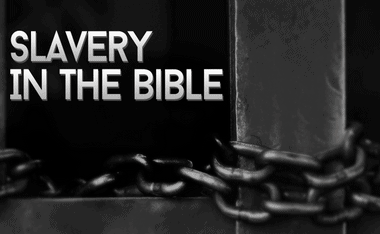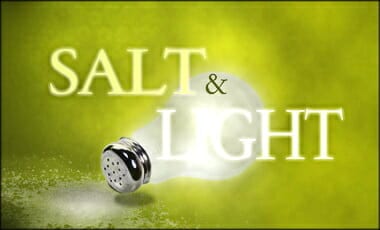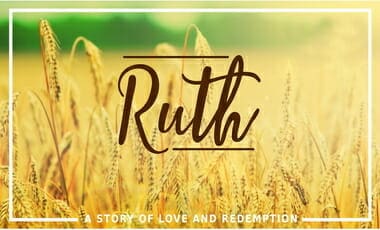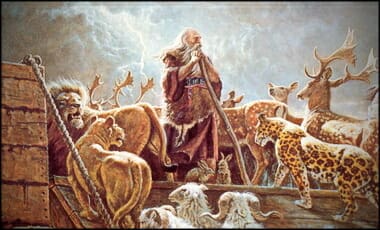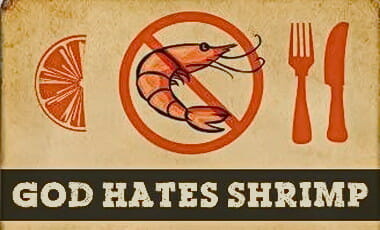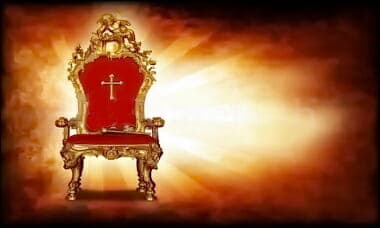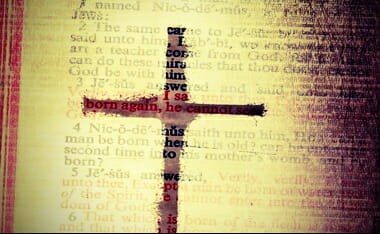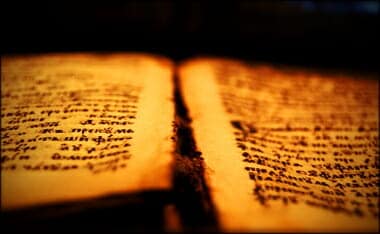Updated Nov 28, 2017 (Originally posted June 20, 2014)
D. Instructions for slaves (6:1–2). Paul gives instructions to Christian slaves in the situation in which they find themselves. He does not defend the institution (see 1 Cor. 7:21; Philem. 15–17) but gives general principles and specific instructions for living in that situation as Christians. Full respect, good service, and a proper attitude should be given to masters. Even slavery does not invalidate Paul’s principles concerning work. Poor work and a poor attitude will give cause for non-Christians to speak evil of God and the teachings of Christianity. Some Christian slaves apparently concluded that because they and their masters were brothers (spiritually equal and in the same “family”) that therefore they could act in a familiar and disrespectful way. Paul argues that Christian slaves should give even better service since they serve believers whom they love.
George W. III Knight, “1-2 Timothy/Titus,” in Evangelical Commentary on the Bible, vol. 3, Baker Reference Library (Grand Rapids, MI: Baker Book House, 1995), 1108.
Previously I attributed this audio to Jonathan Morrow. A viewer corrected me that this was J. Warner Wallace. I will include, still, the previous links to Jonathan’s works below, as they are still great resources to indulge in.
(From video description)
This was an audio I mistakenly attributed to Jonathan Morrow, but in fact (thanks to a compatriot) this is J. Warner Wallace:
★ http://coldcasechristianity.com/
★ http://pleaseconvinceme.com/
★ http://www.str.org/
Detective Wallace rightly places over the matrix of the question the time-stamp in which the text was written, and the context it was written, and whom the text was written for… assuming these persons culture and surroundings and their practices. Not a 21st century understanding of slavery and the American experience.
Jonathan Morrow is the founder of Think Christianly. He is the author of:
- Is God Just a Human Invention?: And Seventeen Other Questions Raised by the New Atheists (with Sean McDowell);
- Welcome to College: A Christ-follower’s Guide for the Journey;
- Think Christianly: Looking at the Intersection of Faith and Culture;
- and contributed the chapter “Introducing Spiritual Formation” to Foundations of Spiritual Formation: A Community Approach to Becoming Like Christ.
Jonathan also contributed several articles to the Apologetics Study Bible for Students. He graduated with an M.Div. and an M.A. in philosophy of religion and ethics from Talbot School of Theology where he is pursuing a D.Min in engaging mind and culture.
Here is Dennis Prager also responding to the issue in his “patented” way (take note that the last audio below is a full show of Prager dealing with slavery):
DENNY BURK has a great article that gets to the point, seven points exactly… I will post a clip of two of the body of his thinking:
2. The Bible Often Condemns the Means by Which Slaves Were Taken as Slaves.
In the first century, slavery wasn’t race-based like it was in the American South. People were taken as slaves through a number of means: warfare, piracy, highway robbery, infant exposure, and punishment of criminals. In all of this, there was always prevalent the issue of kidnapping people in order to enslave them. What does the Bible say about kidnapping?
In 1 Timothy 1:10, the apostle Paul says that kidnapping or man-stealing is against God’s law. Most interpreters recognize that this man-stealing was for the purpose of slavery. That is why the ESV has it as “enslavers” and the NIV as “slave traders.”Certainly, the background for Paul’s command is the Old Testament law:
Exodus 21:16 “Whoever steals a man and sells him, and anyone found in possession of him, shall be put to death” (ESV).
Who is to be put to death? The one who takes the man and the one who holds him. This is significant because some people have made the case that while the Bible does condemn slave-trading it does not condemn slave-holding (e.g., Douglas Wilson, Black and Tan, 56). If this view were correct, there would not necessarily have been any moral problem with Christians owning slaves in the American South during and before the Civil War.
But Exodus 21:16 says that both the kidnapping and the enslavement are punishable by death. And this is the background for Paul’s own thinking about the matter in 1 Timothy. The entire system of Southern slavery was based on kidnapping people from Africa. The slave-traders stuffed these Africans into ship holds where they suffered and died by the thousands. That slave-trade was an abomination. And it is fallacious to suggest that the slave-holders are not morally implicated in the slave-trade. You cannot defend those who participated in the slave trade, nor can you defend those slave owners who created the market for man-stealing.
So the Bible definitely condemns the means by which slaves were taken as slaves—especially kidnapping, which was punishable by death.
3. The New Testament forbids Christians from coercive violence against slaves.
Ephesians 6:9 “Masters, do the same to them, and stop your threatening, knowing that he who is both their Master and yours is in heaven, and that there is no partiality with him.”
Yes, there were Christian slave owners in the New Testament. But no, they were not allowed to threaten their slaves with violence. And obviously, if they weren’t allowed to threaten with violence, they weren’t allowed to actually do violence against their slaves. It may have been allowable under Roman law for a master to abuse or even kill his slave. But it was not allowable under God’s law to do such things. You might call that slavery in some sense, but what kind of slavery is it that doesn’t allow the master to coerce his slave through violence? It’s certainly not Roman slavery. It’s certainly not like slavery in the American South. This is something so different one wonders if you can call it slavery at all.
4. The New Testament commands Christians to treat slaves like brothers.
When Paul wrote to the slave-owner Philemon about his run-away slave Onesimus, Paul told Philemon to receive Onesimus “no longer as a slave, but more than a slave, a beloved brother… If then you regard me a partner, accept him as you would me” (Phlm 16-17).
What kind of slavery is it that tells a master to give up threatening and to treat his slaves like his brother? Again, it’s not Roman slavery. It’s nothing like slavery in the American South. So the Bible isn’t endorsing either one of those. This is something else entirely. And that is why slavery cannot continue where the Kingdom of God holds sway. The Bible completely undermines all the defining features of slavery: kidnapping, coercive violence, treating people like property rather like brothers created in the image of God.
[….]
7. The Bible condemns racism.
As I mentioned earlier, slavery in the New Testament was not race-based. But slavery in the American South was. The Bible forbids treating someone else as less than human because of their race. God created man in his own image—all men—not just white ones or black ones or red ones or yellow ones. Because of that, every person—not just some people—every person has inherent dignity and worth as image-bearers of almighty God. For this reason, the diversity of races is not an evil to be abolished but a glory to be celebrated. God intends to gather worshipers for Himself from every “tribe and tongue and people and nation” (Rev 5:9). And we know that in Christ “there is no distinction between Greek and Jew, circumcised and uncircumcised, barbarian, Scythian, slave and freeman, but Christ is all, and in all” (Col 3:11).
So no, the Bible does not endorse slavery nor the evils inherent in slavery. On the contrary, it abolishes them in the name of Jesus. The gospel of Jesus Christ does not command us to take up arms in violent revolution to abolish slavery. It does, however, introduce a new kingdom in the world that will one day overthrow all unjust authorities. And we are called as the church to be an outpost of that coming kingdom. And wherever the church goes, slavery must flee because the Kingdom of Christ will not abide unjust authorities.
When the critics assail scripture, they often make confident assertions about things they know very little about (1 Tim. 1:7). In this case, when they rail against the Bible’s alleged endorsement of slavery, they are misrepresenting what the Bible actually teaches. Every word of God is pure and good and wise and right and good for us–including what it says to us about those under the yoke.
“Your word is very pure,
Therefore Your servant loves it.” –Psalm 119:140
Likewise, a great article by APOLOGETIC PRESS notes the following…
TAKING PAUL’S TEACHING TO ITS LOGICAL CONCLUSION
Over time, with the spread of Christianity (cf. Acts 19:10,26; 21:20) and with increasing numbers of slave masters becoming Christians, the physical lives of many slaves would have improved dramatically. As slave owners with honest and good hearts learned (1) to love the Lord with all their heart, soul, mind, and strength, and (2) to love their neighbors (including their slaves) as themselves (Matthew 22:36-40), they would give up “threatening” (Ephesians 6:9). As Christian slave owners contemplated treating others how they want to be treated (Matthew 7:12), they would give their slaves “what is just and fair,” knowing that they, too, had a Master in heaven (Colossians 4:1). As slave owners submitted to Christ, they would be transformed by the Gospel, learning to be “kindly affectionate” to everyone (Romans 12:2,10), including all those who served them. In short, far from endorsing sinful slavery, Paul’s teachings, taken to their logical conclusion, would eventually lead truth-seeking masters and government officials to help bring an end to any kind of cruel, sinful captivity.
 For an extensive and in-depth writing on this, see Kyle Butt’s article, “Defending the Bible’s Position on Slavery,” originally in Reason & Revelation, 25[6]:41-47.
For an extensive and in-depth writing on this, see Kyle Butt’s article, “Defending the Bible’s Position on Slavery,” originally in Reason & Revelation, 25[6]:41-47.
On the Ultimate Issues Hour, Dennis Prager speaks about his upcoming book to be published and the topic of “Slavery and the Bible.”
COMMENTARIES
Slaves in the Church 6:1–2a
Slaves comprised a third group of persons in the household of God who needed instruction. In the Roman world a small percentage of people were very rich. Persons serving in the Roman Senate and the equestrians made up the privileged classes of people and numbered less than 1 percent of the population (Bell: 187). Most persons were patrons or clients. Patrons provided for the well-being of clients by providing jobs, food, shelter, and so forth. In some wealthy households, even some of the slaves had clients, who hoped that they would influence their owner to secure favors for them (Bell: 192). Slavery was not limited to poor persons in Roman society, nor was it based on race. Roman law did not formally recognize slave marriages. Slaves were considered property. David A. de Silva suggests that fully 25 percent of the Roman population were slaves (de Silva: 141), while another writer thinks that slaves may have constituted a majority in society (Collins: 152).
Persons became slaves if their country was conquered by another country. Criminals, persons who defaulted on their debts, and those born into slave families were all considered slaves in the first century. Some slaves served in high levels of administration, while others worked in domestic and fieldwork. Though Aristotle defined a slave as a “living tool” (Nicomachean Ethics 8.11; de Silva: 142), Stoics and Christians recognized the humanness of slaves (Bell: 194).
Paul’s instructions on slaves connect to those regarding widows and elders in the church through the use of the term honor. In the Pauline mission, slaves became Christians and participated in the household of God. A Christian slave owner could go to the worship service in his household and see his slave(s) in the gathering. The slave may even be leading worship. On the one hand, Christian slaves needed instruction on how to conduct themselves in a social and cultural context with its own expectations about what slaves could or could not do. On the other hand, the church understood that freedom in Christ meant that the slave was a brother or sister in the congregation (Gal 3:28). Therefore the church had to learn how to live out its life of freedom and faithfulness to Christ in the midst of a culture that generally treated slaves poorly. The church could withdraw from society, or it could simply accommodate itself to society, both of which would destroy its life and mission.
Paul instructs Christian slaves about how they should live in two kinds of settings within the larger culture. First, he instructs slaves who have non-Christian masters (6:1). Second, he instructs slaves who have Christian masters (6:2). With both, Paul is concerned about the mission of the church (6:1b, 2b; Titus 2:10b) [Contextualizing the Gospel, p. 339]. As with widows (1 Tim 5:7, 14–15) and elders (5:20), the behavior of Christian slaves has a direct effect upon the mission of the church (6:1b). Paul’s teaching on slaves here in 1 Timothy 6:1–2 is similar to other NT household codes (Eph 6:5–9; Col 3:22–4:1; 1 Pet 2:18–25), with two major exceptions. First, in 1 Timothy, Christian masters are not told how to treat slaves (Verner: 140–41). And second, a major distinction is made between the way slaves treat non-Christian masters and Christian masters. This distinction is significant because the religion of the master of the household often determined the religion of the whole household, including the slaves.
Let all who are under the yoke of slavery regard their masters as worthy of all honor (6:1a). The phrase under the yoke of slavery refers to Christians who live under the power and rule of a master. It is the normal phrase used for being under a tyrant, or in slavery, and calls attention to its burdensome character (I. H. Marshall 1999: 629). The exhortation to attribute honor to a non-Christian master indicates that Christian slaves who have found freedom in Christ likely want to be free of their masters. If slaves show disrespect and even rebel against their masters, their attitude becomes diametrically opposed to the social practice of the day. To prevent major conflict within that social and cultural context, slaves are exhorted to show respect to their masters. Disrespect to masters will bring disrepute upon the church and clash with the commonly accepted cultural practice.
Respect toward non-Christian masters is emphasized with a purpose clause: so that the name of God and the teaching may not be blasphemed (6:1b). Respect and honor may lead some masters to Christ. In words reminiscent of Romans 12:21, “Do not be overcome by evil, but overcome evil with good,” Paul exhorts Christian slaves to align their attitude toward masters with the mission of the church. Paul considers the success of the gospel to hold more importance than the immediate abolition of slavery in Roman society, for if the gospel reaches many in Roman society, slavery itself will eventually be abolished. A similar statement in Titus 2:10 says that slaves are to live in submission to their masters so that in everything they may be an ornament to the doctrine of God our Savior. Lack of submission can bring the Christian message into disrepute, while submission to non-Christian masters enhances it (Bassler 1996: 104). Since God desires that everyone be saved (1 Tim 2:4), Paul apparently thinks it best not to be too disruptive of Roman society or to bring slander upon the church. Instead, Paul believes the mission of the church should lead the way. As more citizens became Christians, the institution of slavery may be eliminated. The church at Ephesus cannot afford a reputation that denies Christian teaching and blasphemes the name of God.
Next, Paul addresses slaves who have Christian masters (6:2). The Christian slave and the Christian master are brothers (NIV) and sisters in Christ. Does this mean that the master-slave relationship should also change? Paul says that those who have believing masters must not be disrespectful to them (6:2a). The term be disrespectful means to hold or show contempt toward another. Some Christian slaves think that since both master and slave are fellow members in the church family, they no longer need to be subordinate to their masters (Verner: 143). The Christian gospel was a radical leveler in Greco-Roman society, and communities of faith were hard-pressed to negotiate the implications of the gospel in terms of social roles. The fact that a slaveholder was a Christian could not become an excuse for the slave to take advantage of the master’s religion to further one’s own cause. On the contrary, the slave should offer willing service all the more, since servanthood brings a benefit. Paul argues from the lesser to the greater by saying the slave must serve them all the more. Even the master who is a Christian is still the master, and the slave is still the slave. Moreover, the service of an obedient slave results in a benefit. The word benefit means good deed, benefit, service, or benefit of service. Knight indicates that this term was used in the first century to describe the actions of one in authority who was a benefactor toward one under him (Knight 1992: 247). Thus a Christian slave’s willing service for a Christian master bestows good on the master. The master in response returns that good to the slave by providing a good living for the slave.
Paul has deliberately picked up the language of honor and shame common in the ancient world (1 Tim 6:1–2) [Honor and Shame, p. 354]. But he reverses it. In the ancient world only masters could be benefactors. Masters as benefactors are worthy of honor (Johnson 2001: 290). But here Paul places the slave in the position of being the benefactor! A slave’s service represents a position of strength and brings honor not only to the master, but also to the name of God and the Christian teaching. By slaves treating the master as beloved, both master and slaves can be brothers and sisters together in Christ and enjoy life together in the church. Both master and slaves exercise what it means to serve a higher authority (i.e., Christ) and become slaves of Christ. This Christian attitude greatly enhanced the Christian mission within Roman society with its cultural and social stratification, while also giving the church freedom to live as Christians.
Paul M. Zehr, 1 & 2 Timothy, Titus, Believers Church Bible Commentary (Scottdale, PA; Waterloo, ON: Herald Press, 2010), 119–122.
6:1–2. Slavery was widespread in the pre-Christian era. By the time of Christ, treatment of slaves had greatly improved.
Romans freed slaves in great numbers in the first century, not only for humanitarian reasons, but also because the freeborn citizenship was declining and thus there were fewer to serve in the military. Only a freed slave could serve in the military.
The church of Ephesus over which Timothy was ministering had slaves and masters as members. Paul wouldn’t give these instructions otherwise.
The expression under the yoke may suggest that slavery in that day was a difficult situation in which many owners viewed their slaves as little more than cattle.
Paul doesn’t instruct bondservants (slaves) to seek to escape. Rather, he tells them to count their own masters worthy of all honor. They were to do this whether the master was worthy of such honor or not.
The reason was so that the name of God and His doctrine may not be blasphemed. God’s name and His doctrine are put in a bad light when slaves fail serve wholeheartedly. Wholehearted service, however, exalts God’s name and His doctrine.
It’s easy to see how Christian slaves who have believing masters might despise their masters because they are brethren. They might expect preferential treatment, or even outright release (see Philemon).
Yet slaves were not to have such a narrow world view. This life is all about pleasing God (cf. Eph 6:5–9; Col 3:22–4:1; and 1 Pet 2:18–21).
Robert N. Wilkin, “The First Epistle of Paul the Apostle to Timothy,” in The Grace New Testament Commentary, ed. Robert N. Wilkin (Denton, TX: Grace Evangelical Society, 2010), 985.
6:1, 2 The Ephesian believers may have been struggling to maintain a biblical work ethic in the world of slavery, so these verses form Paul’s instruction on that subject. Essentially, first century slaves resembled the indentured servants of the American colonial period. In many cases, slaves were better off than day-laborers, since much of their food, clothing, and shelter was provided. The system of slavery served as the economic structure in the Roman world, and the master-slave relationship closely parallels the twentieth-century employer-employee relationship. For more on slaves, see Introduction to Philemon: Background and Setting.
6:1 under the yoke. A colloquial expression describing submissive service under another’s authority, not necessarily describing an abusive relationship (cf. Mt 11:28–30). slaves. They are people who are in submission to another. It carries no negative connotation and is often positive when used in connection with the Lord serving the Father (Php 2:7), and believers serving God (1Pe 2:16), the Lord (Ro 1:1; Gal 1:10; 2Ti 2:24; Jas 1:1), non-Christians (1Co 9:19), and other believers (Gal 5:13). masters. The Gr. word for “master,” while giving us the Eng. word “despot,” does not carry a negative connotation. Instead, it refers to one with absolute and unrestricted authority. all honor. This translates into diligent and faithful labor for one’s employer. See notes on Eph 6:5–9; Col 3:22–25. our doctrine. The revelation of God summed up in the gospel. How believers act while under the authority of another affects how people view the message of salvation Christians proclaim (see notes on Tit 2:5–14). Displaying a proper attitude of submission and respect, and performing quality work, help make the gospel message believable (Mt 5:48).
6:2 believers as their masters. The tendency might be to assume one’s equality in Christ with a Christian master, and disdain the authority related to work roles. On the contrary, working for a Christian should produce more loyal and diligent service out of love for the brethren. preach. Lit. “to call to one’s side.” The particular emphasis here is on a strong urging, directing, and insisting on following the principles for correct behavior in the workplace.
John F. MacArthur Jr., The MacArthur Study Bible: New American Standard Bible. (Nashville, TN: Thomas Nelson Publishers, 2006), 1 Ti 5:25–6:2.
D. Bondservants and Masters (6:1, 2)
6:1 The conduct of slaves is now brought before us. They are spoken of as bondservants who are under the yoke, that is, the yoke of slavery. The apostle, first of all, speaks to slaves who have unsaved masters. Should slaves in such a case act insolently toward their masters? Should they rebel or run away? Should they do as little work as possible? On the contrary, they should count their own masters worthy of all honor. This means that they should give them due respect, work obediently and faithfully, and in general seek to be a help rather than a hindrance. The great motive for such diligent service is that the testimony for Christ is involved. If a Christian slave were to act rudely or rebelliously, then the master would blaspheme the name of God and the Christian faith. He would conclude that believers were a worthless lot.
The history of the early church reveals that Christian slaves generally commanded a higher price on the slave market than unbelievers. If a master knew that a certain slave on the auction block was a Christian, he would generally be willing to pay more for that slave, since he knew that the slave would serve him faithfully and well. This is high tribute to the Christian faith.
This verse reminds us that no matter how low a person’s position may be on the social scale, yet he has every opportunity for witnessing for Christ and bringing glory to His name.
It has often been pointed out that the institution of slavery is not openly condemned in the NT. However, as the teachings of Christianity have spread, the abuses of slavery have been abolished.
Every true believer should realize that he is a bondslave of Jesus Christ. He has been bought with a price; he no longer belongs to himself. Jesus Christ owns him—spirit, soul, and body, and deserves the very best he has.
6:2 This verse deals with slaves who have believing masters. Doubtless there would be a very great temptation for such slaves to despise their masters. It is not at all unlikely that when the local church met together on Lord’s Day evening for the breaking of bread (Acts 20:7), there would be Christian masters and Christian slaves seated around the table—all brethren in Christ Jesus. But the slaves were not, on this account, to think that the social distinctions of life were thereby abolished. Just because a master was a Christian did not mean that the slave did not owe him honor and service. The fact that the master was both a believer and a beloved brother should influence the slave to serve him faithfully.
Christian masters are here spoken of not only as faithful (believers) and beloved, but also as those who are benefited. This is generally taken to mean that they, too, are sharers in the blessing of salvation. However, the words might also be understood to mean that since both slaves and masters are interested in doing good, they should serve together, each trying to help the other.
The words teach and exhort these things doubtless refer to the preceding instructions to Christian slaves. The present-day application would be, of course, to the employer-employee relationship.
William MacDonald, Believer’s Bible Commentary: Old and New Testaments, ed. Arthur Farstad (Nashville: Thomas Nelson, 1995), 2098–2099.
D. Concerning Slaves And Masters (6:1–2).
6:1. Under normal circumstances slaves and masters had no associations outside the institution of slavery. With the advent of the gospel, however, these two groups found themselves thrown together in the congregation in new ways, creating problems the apostles were forced to address repeatedly (cf. 1 Cor. 7:20–24; Gal. 3:28; Eph. 6:5–9; Col. 3:22–25; Phile.; 1 Peter 2:13–25). Paul’s instructions here correspond entirely with what is taught elsewhere in the New Testament on the subject, with one major exception: in this passage he addresses only slaves. Usually his exhortations to submit to authority were immediately buttressed by warning masters against abusing their authority (cf. Eph. 6:5–9; Col. 3:22–4:1).
The matter of the uses and abuses of authority is first and foremost a problem of attitude. Thus Paul wrote repeatedly of how slaves and masters should see themselves and one another. Here he wrote that slaves are to view their masters as worthy of full respect (timēs, “honor”). The same word is used of God in 1 Timothy 1:17 and 6:16, and of elders in 5:17. Such honor or respect should be granted lest God’s reputation and the Christian faith (hē didaskalia, “the teaching”; cf. 1:10; 4:1, 6, 13, 16; 5:17) be slandered (lit., “be blasphemed”). Social goals should always be subordinate to spiritual values.
6:2. Paul’s thought here is totally foreign to the world, and can be fully appreciated only by those who view their lives through the eyes of Jesus Christ (cf. Mark 10:42–45). Christian slaves whose masters are also believers should redouble rather than reduce their service. This should stem purely from the realization that the one who is receiving the benefits is a beloved brother or sister in Christ. The attitude undergirding this instruction is complete nonsense to anyone who does not understand the Lord Jesus, but it is the genius of Christlikeness and the ultimate source of all meaning and joy in life to those who have eyes to see (cf. John 13:4–17; 15:9–14). Thus Timothy was commanded once again to teach and urge … these things on the congregation (cf. 1 Tim. 4:6, 11; 5:7).
A. Duane Litfin, “1 Timothy,” in The Bible Knowledge Commentary: An Exposition of the Scriptures, ed. J. F. Walvoord and R. B. Zuck, vol. 2 (Wheaton, IL: Victor Books, 1985), 745.
Witness In The Workplace (6:1–2)
Paul is not endorsing slavery in these verses. Rather, he is addressing a reality that existed at that time. Slavery was common in the Roman Empire and many of the people who became Christians would have been slaves.
What were they to do now that they were free in Christ? They were to act in a way that would bring glory to Christ ‘so that God’s name and our teaching may not be slandered’ (v. 1, NIV). They would do so by showing respect to their masters. It seems that some slaves in Christian households had become disrespectful to their masters and this had resulted in a bad witness. So Paul corrects it by telling Timothy to teach them to work even harder ‘because those who benefit from their service are believers, and dear to them’ (v. 2, NIV).
These principles apply to the workplace in the modern world. Christians should make sure that they are not ‘too heavenly minded to be of any earthly use’. We may have had the opportunity to tell our colleagues and employers the good news, but if we are lazy and unreliable, we will undermine the message we have communicated. We must also be careful not to take advantage of a Christian boss and expect favouritism from him or her. Instead, we should work even harder than we would for someone who is not a believer. This will be a great encouragement to that boss and help his or her own witness in the workplace.
Simon J. Robinson, Opening up 1 Timothy, Opening Up Commentary (Leominster: Day One Publications, 2004), 94–95.
